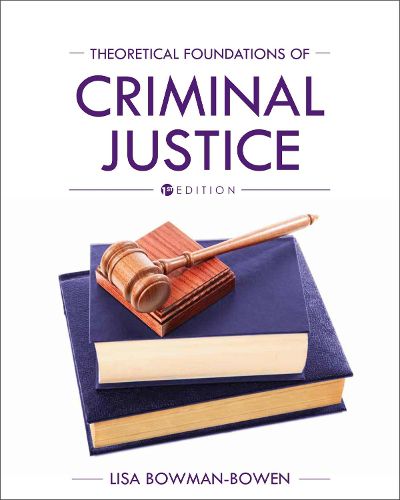Readings Newsletter
Become a Readings Member to make your shopping experience even easier.
Sign in or sign up for free!
You’re not far away from qualifying for FREE standard shipping within Australia
You’ve qualified for FREE standard shipping within Australia
The cart is loading…






Theoretical Foundations of Criminal Justice provides students with an introduction to criminal justice theory, offers them a greater understanding of the differences between system behavior and offender behavior, and demonstrates how criminal justice theory is reflected within key scholarly works.
The text is divided into six units. Each unit provides a historical foundation to the theoretical concepts discussed, followed by carefully selected articles that encourage readers to compare more recent research within the system to the prior purpose and intent of each component of the criminal justice system.
The opening unit examines the differences between offender behavior and system behavior and provides students with an overview of criminological theories and their micro, meso, and macro applications. Proceeding units focus on a specific area of the criminal justice system, including law and government; law enforcement; courts and sentencing; corrections; and probations and aftercare. Specific topics addressed within the articles include procedural justice, legitimacy, and the effective rule of law; concepts and strategies that have influenced community policing; realism about judges; the scale of imprisonment in the United States; and more.
Emphasizing critical thought and real-world application, Theoretical Foundations of Criminal Justice is an ideal textbook for courses in criminal justice theory.
$9.00 standard shipping within Australia
FREE standard shipping within Australia for orders over $100.00
Express & International shipping calculated at checkout
Theoretical Foundations of Criminal Justice provides students with an introduction to criminal justice theory, offers them a greater understanding of the differences between system behavior and offender behavior, and demonstrates how criminal justice theory is reflected within key scholarly works.
The text is divided into six units. Each unit provides a historical foundation to the theoretical concepts discussed, followed by carefully selected articles that encourage readers to compare more recent research within the system to the prior purpose and intent of each component of the criminal justice system.
The opening unit examines the differences between offender behavior and system behavior and provides students with an overview of criminological theories and their micro, meso, and macro applications. Proceeding units focus on a specific area of the criminal justice system, including law and government; law enforcement; courts and sentencing; corrections; and probations and aftercare. Specific topics addressed within the articles include procedural justice, legitimacy, and the effective rule of law; concepts and strategies that have influenced community policing; realism about judges; the scale of imprisonment in the United States; and more.
Emphasizing critical thought and real-world application, Theoretical Foundations of Criminal Justice is an ideal textbook for courses in criminal justice theory.